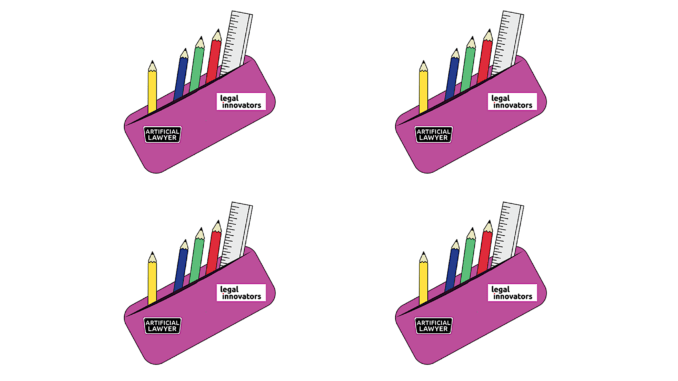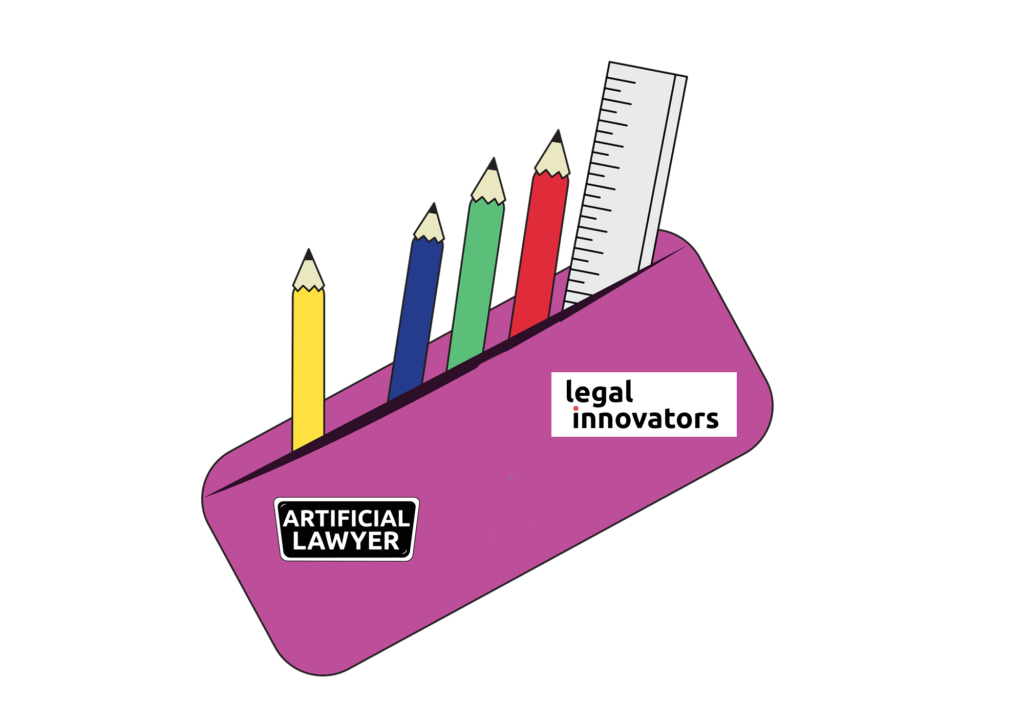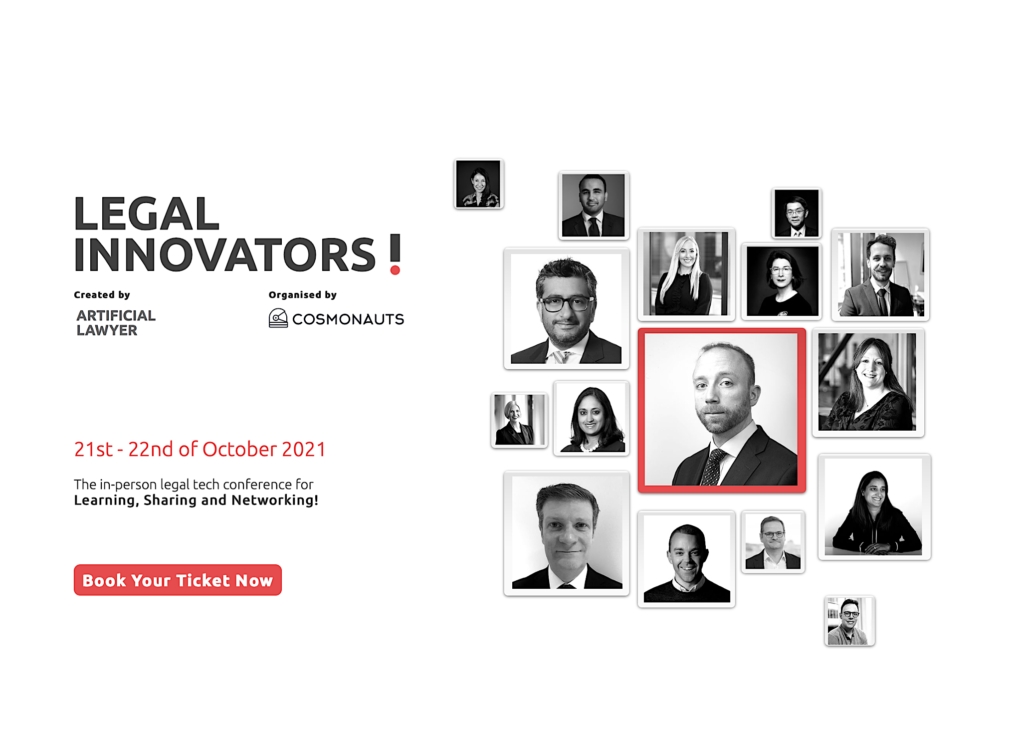
For many people, this week marks the real beginning of the post-summer return to work. But what are some of the key themes of this new Autumn Term, especially for the buyers and developers of legal tech? Artificial Lawyer has a look.
Back to the Office (Partly)
First, let’s deal with the one thing that is going to affect most of us: a partial return to the office. This site has spoken to a lot of firms over the summer and the general consensus is that staff will be back in the office around two to three days a week, with many starting the new format from this month.
New working patterns will take some time to get used to. When your team leader says they want everyone in on Friday, but you normally have that day at home, this will cause some friction. But, a new balance will emerge.
One thing that likely will need to take place in-person is product development, and planning meetings for those on the innovation strategy side of things.
Creativity often depends on serendipity and the random coming together of ideas, with in many cases one person’s idea catalysing another person to a find a new insight that then helps the whole group. These kinds of brainstorming, free-form experiences are best done in-person and without too much of a rigid agenda – other than knowing broadly where you’re trying to get to.
People spark off each other in these circumstances, and that is far harder to do within the detached and enthusiasm-sapping environment of a group Zoom call.
So, if you’re coming in to do emails, then you may as well stay at home. But, if there is something to plan, to build, to sketch out, and you believe two (or even ten) minds are better than one, then get together in-person, you will almost certainly pioneer forward more easily and uncover new ideas you may not have found otherwise.
Conference Season
Another in-person aspect for the New Term is that it is conference season. Some are offering a mix of on-line and real world experience, others are reiterating the value of being together without being intermediated by a computer screen.
Artificial Lawyer’s Legal Innovators in London, for example, will be a two-day event in the City of London on October 21 and 22, and has taken the decision to be 100% in-person. This is because when it comes to the realm of ideas, of learning, sharing and networking, as noted above, a physical meeting where people can catalyse each other is more rewarding.
Serendipity is key here. For example, there are countless examples of where this site’s founder has been at an event and chatting to someone, then spotted someone else who it would be great to introduce the other person to. From there sometimes great business relationships have grown. You just can’t do that so easily on-line.
And that is the real value of in-person events. Not necessarily just the learnings one gathers, but the chance encounters, the new friendships and connections that are made. This is the kind of thing that simply cannot be replaced by anything on-line. You just need to be there.

Dealing With Consolidation
Now onto something more specifically about the tech itself. Consolidation is clearly having a material impact now on the choice of vendors in the market. It’s not that there aren’t still hundreds of legal tech companies around – and there are more each week. It’s that some of the big names, the companies a lot of firms and inhouse teams use, are steadily getting bought up and integrated into platforms. From Litera buying Kira Systems, to Onit buying Bodhala, this eventually all has an impact.
For the buyers of legal tech this presents some interesting challenges. Clearly they don’t want to stop using a tried and tested provider just because it’s part of a larger business. Moreover, it’s possible the offering could improve through the product’s integration with other parts of the platform.
But, at the same time this could mean a change in some relationships, and eventually a change perhaps in pricing and the terms of the licence agreement.
Then there is the decision around whether to onboard the other products of the platform. For example, you’ve been using X for some time. X is bought by Mega Platform. The platform wants you to use the rest of its offerings. You are tempted – as this could make life easier – but you also have existing deals with a bunch of other companies already.
What do you do? Have multiple licences for the same type of product? Go in heavily on one platform where its products meet your needs? Keep the pick and mix approach, and hope all the tools talk to each other easily?
It’s not a terrible problem to have. More choice is usually a good thing. But, it will be giving tech teams in law firms and inhouse groups plenty to think about.
And, of course, the legal tech M&A boom is far from over. We should expect plenty more deals as we head to Christmas, which will further reshape your relationship with many of the tools that you have come to rely upon.
Building The New Legal Economy
The world of process provision and legal ops is only going to grow more important this term as the bifurcation of the legal market continues.
Companies such as Knowable and Factor, a range of other ALSPs, plus the Big Four, and a growing number of law firms, are expanding their efforts here and demand will increase.
As the demand for complex advisory work chugs along at what is at present a very high level, the demand for better process management of standard contract work, plus the extraction and dashboarding of contract data, keeps expanding. Hence the point about bifurcation – i.e. a twin system of progression that has two directions of propagation.
And, the big review tasks related to M&A and compliance will also increasingly move towards those who have developed the systems to handle this process work. So, BAU work and business data extraction from contracts, and also event-driven review work will keep changing.
P.S. it’s worth underlining that the ALSPs and law firm process groups doing this are not staffed by just anyone. In many cases, e.g. Factor, many of the staff are experienced lawyers – they just don’t work as regulated practitioners. It’s a mistake to think that process work is the realm of ‘non-lawyers’, and people perpetuating that idea are perhaps trying to shore up the old way of doing things.
You’ve Never Had It So Good.…So Far
The commercial legal market, at least among the larger firms, is booming. Work is surging and the partners are PEP-ed up beyond their wildest dreams in many cases.
This means that firms’ support teams are also busier than ever, keeping up with a range of tasks to enable the great ships of the AmLaw 100 and UK 100 to keep steaming ahead.
Will this ever slow down? Well, this site’s founder has been in the legal market in one way or another since 1999 and has witnessed several periods of boom and bust in the wider economy. One truth about economic trends is that no trend lasts forever.
As corporates find stability again after the ravages of the pandemic, things will naturally start to ease off a bit – and that’s a good thing. During the surge before the great 2008/2009 crash, General Counsel and law firm partners could be heard whispering to each other: ‘This is great, but I fear we are missing things.’ And of course, they were. And then the banking system almost collapsed and would have taken the major Western economies with it had not governments finally stepped in and bailed the banks out and printed tens of billions in new money to keep everything afloat. So, working constantly flat out is not always a good thing…..even aside from burnout and a range of other work/life issues.
But, this is not saying that every boom results in a crash, but rather that every boom does come to an end. It will be interesting to see if indicators such as Thomson Reuters’ Peer Monitor Index start to see any changes.
P.S. you may ask: what has this got to do with legal tech? The answer is that law firm cashflow impacts tech investment and the hiring of staff in areas such as innovation. Moreover, it is often argued – by this site among others – that it was the great crash of 2008/2009 that eventually led to the New Wave of legal tech that started in 2015/16 because of the need to improve efficiency, (but, that’s another story).
Big Surprises…?
So, other than a possible slowing down of the frantic pace we’ve had recently – and perhaps an increase in running costs as people come back to the office and travel for business again – what else may happen?
As noted, more mergers will take place, and perhaps more major brand names will be part of this – perhaps even ones we’d never have believed would decide to sell up.
On the tech side, will we see big changes? GPT-3 has been interesting but few practical applications have been made in the legal world and massive new breakthroughs in NLP technology seem unlikely any time soon.
Blockchain remains mostly a red herring and if anything will steadily fade out of the legal tech focus – even if lots of legal tech folk have joined in the enthusiasm for investing in cryptocurrencies on a personal basis.
Smart contracts’ destiny is really in the hands of DocuSign now – and it will be interesting to see what happens there.
No-code systems will continue to grow in popularity, but again, the core approaches there have been well-established for some time. We are seeing more finessing of the UI/UX now, rather than core tech changes.
And when it comes to doc automation the focus is on better data extraction at the point of creation, more data sharing and better workflow – rather than total redesigns.
We will see hopefully more standardisation projects – and the last 9 months suggest that will certainly be the case. And perhaps, going back to the process point, there will be a steady increase in the use of non-time-based value assessment.
But, whatever happens, Artificial Lawyer is excited about the New Term and hopefully we will all get to meet at Legal Innovators in London, October 21 and 22, and talk all about it. See you all there!

And you can get tickets here.